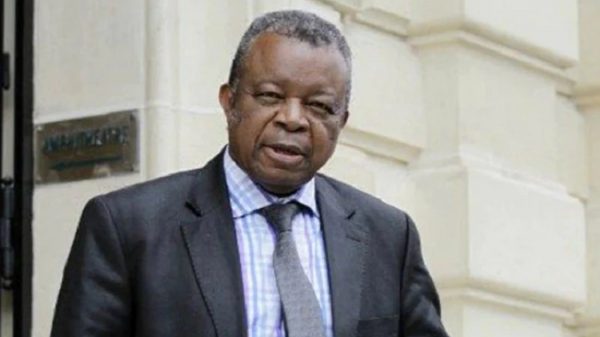‘Ebola is defeated’, says Congolese professor who discovered virus

- Update Time : Saturday, September 18, 2021
- 144 Time View

Ebola has been defeated. Vaccines and medical treatments have brought the deadly and terrifying disease under control, says Jean-Jacques Muyembe, the Congolese professor who first discovered the virus more than 40 years ago.
The 79-year-old virologist was speaking at a ceremony in the Democratic Republic of Congo’s capital Kinshasa marking the arrival on the market of the “Ebanga” treatment, which was approved last December by the US Food and Drug Administration.
Together with more effective clinical treatments, the availability of vaccines means the highly infectious haemorrhagic fever that once proved almost always fatal can now be contained.
“For 40 years I have been a witness and a player in the fight against this terrifying and deadly disease and I can say today: it is defeated, it is preventable and curable,” Muyembe said.
“I’m the happiest of Congolese people.”
Ebanga, a human monoclonal antibody that prevents the virus from entering a cell and reduces the risk of dying, is “the Congolese molecule”, as US biologist Nancy Sullivan put it, having done research in America with Muyembe.
– ‘Samples with bare hands’ –
Muyembe first came across the virus in 1976 as a field epidemiologist when he was called to the village of Yambuku in northern DRC, which was then called Zaire.
A mysterious illness had just appeared.
He took a sample from a sick nun, sent it to Belgium, where microbiologist Peter Piot isolated the virus for the first time — and is widely miscredited as the man who “discovered” the disease.
The virus was named Ebola after a river close to Yambuku.
“At the time, I took samples with my bare hands, as blood was flowing”, Muyembe told AFP before the ceremony in his laboratory, equipped with gloves, a gown, boots and a protective cap.
After 1976, the disease plunged back into obscurity until 1995 when an epidemic of “red diarrhoea” erupted in Kikwit, a 400,000-strong city in western DRC.
Muyembe tried treating eight patients with transfusions of blood from someone who was recovering. Seven survived.
That gave him the idea for Ebanga, which was eventually tested for the first time in 2018.
“Here we do the diagnosis,” said the professor in his lab. “It’s very important in the field to know if a patient has Ebola.”
If the disease rears its head, “we interrupt the chain of transmission, we vaccinate all those around a positive case, and we treat those who are ill,” he said.
“If the outbreak is declared in time, it can be over in a week,” added the virologist, who heads up the DRC’s National Biomedical Research Institute and also coordinates the fight against Covid-19 in the country.
Since it appeared, Ebola has killed more than 15,000 people.
The main symptoms are a temperature, vomiting, bleeding and diarrhoea.
The biggest epidemic hit Western Africa between 2013 and 2016, killing 11,000 people.
DRC meanwhile experienced its 12th epidemic this year, which lasted three months.















